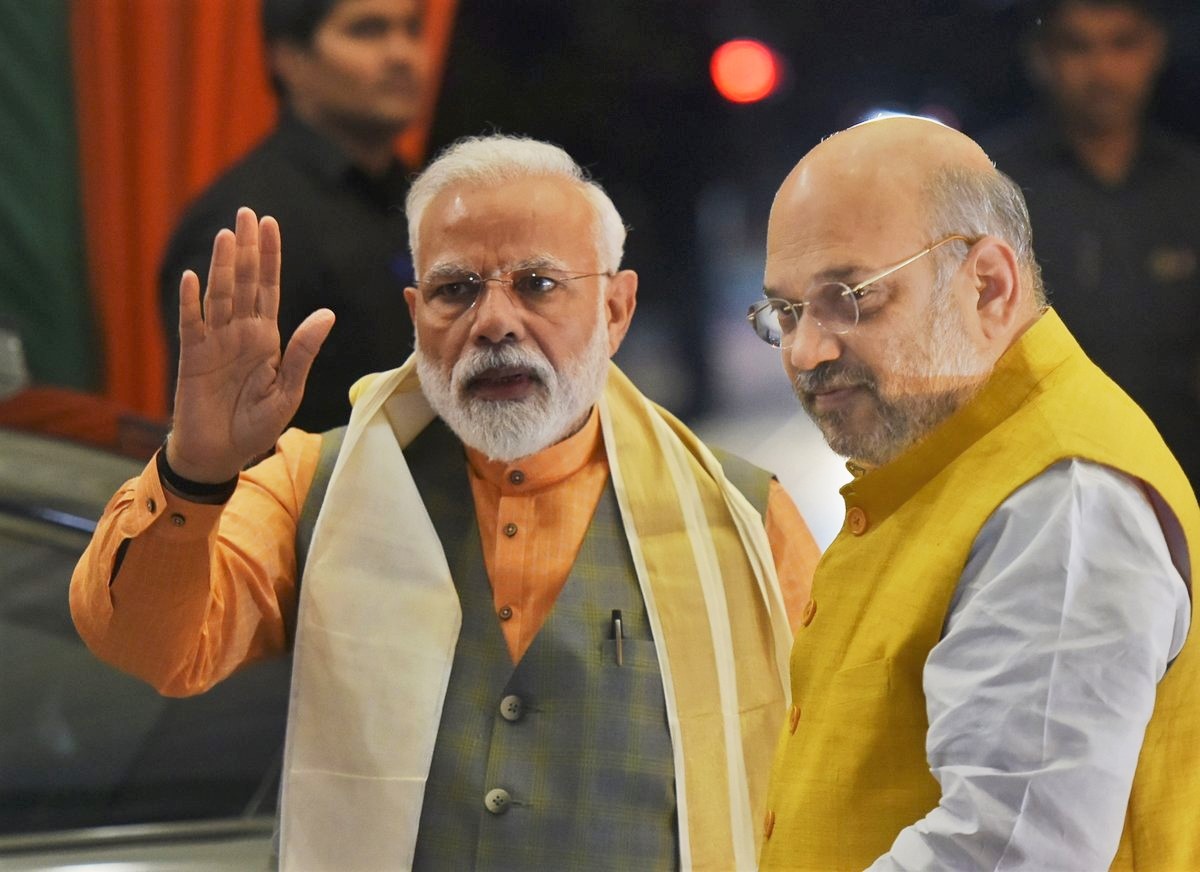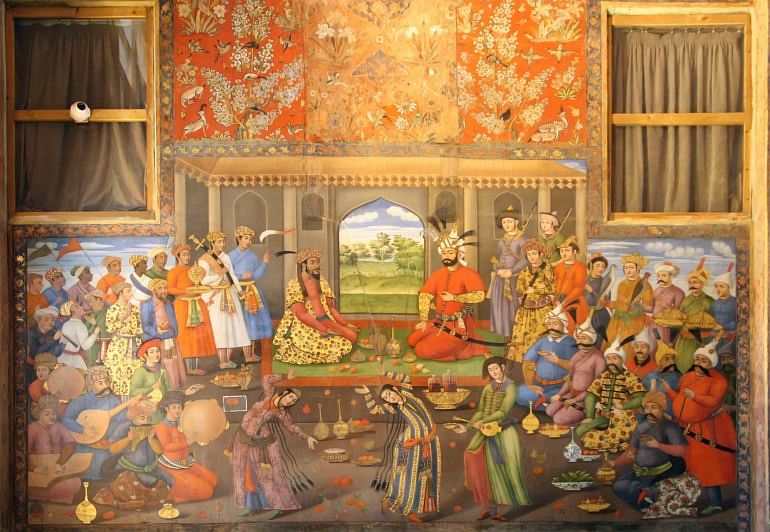Studying the history of the subcontinent one factor was always common that traditional invaders always arrived from either central Asia or from the Arabian Gulf sides. The nature of invasions in terms of objectives varied from rivalry of the ruler to an expansionism mindset of conquerors like Muslim Abbasid conquest, Mahmoud Ghaznavid, Gengis Khan, Delhi Turkic Sultanate, the Mughal Empire and finally the British Raj. In all above-mentioned invasions and consequent ruling periods by invaders, the end result was that United India or the sub-continent always remained under foreign occupation for more than one thousand years. The local Hindu dynasties were never strong enough to stop the invaders, some marginal dynasties tried to offer minimal resistance like Rana Sanga who initially invited Babar to invade Delhi in order to eliminate the Lodhi dynasty. Rana Sanga lost the war miserably after Babar successfully overcame the Lodhi dynasty.
In the political and military set-ups established by the Muslim rulers, local Hindus were not either given opportunity to extend their influence or they were not interested in doing so until Mughal Emperor Akbar went an extra mile and established personal relations with the Rajput dynasty and married Rani Jodha Bai. This was the initialization of a new era when locals were given access to state craft and military affairs.
Although Muslims never tried to convert locals to Islam by force, yet this is the slogan often used by the Rashtriya Swayamsevak Sangh (RSS) mainstream leadership that Muslims living in India were once Hindus and were forcefully converted to Islam during the thousand-year Muslim rule. Moreover, their fear is that the Muslim population is growing rapidly in India that might change the political scenario again in the future so something must be done about it. Incidents of ethnic cleansing, religious riots and the recent Nationality bill alongwith lynching of Muslims is a clear and visible pattern how the RSS Hindutva mindset works and how it will be dangerous for the minorities.
A new pattern that emerged from Modi’s Hindutva ideology is the aggressive pursuit of BJP/RSS agenda written in its manifesto since many decades. Previous BJP governments were not able to accomplish this agenda due to certain internal factors, including secular and powerful moderate voices within India and of course its secular Constitution. It required a fanatic leader like Modi to come to power to fulfill the BJP and RSS agenda. Moreover, the step by step and systematic induction of RSS goons at the government’s administrative levels including bureaucracy, police, military and judiciary has provided a boost and confidence amongst the RSS rank and file that the time has come to pursue the long-awaited agenda. So, the first step taken was to revoke Indian Held Kashmir’s special status. This unilateral move has huge consequences for the people of Kashmir, Pakistan as a sovereign state and to the Muslims living in India and Bangladesh (so called Akhand Bharat context).
One worrisome fact that needs to be elaborated for readers is that the emergence of this RSS and Hindutva ideology has expansionist plans west ward. We all well know that India is surrounded by oceans from three sides, on the north is the Himalayas and China from where Indians always find a threat. On the east is Myanmar and ASEAN nations – that is not really of interest to India for many reasons. The only way where they would like to expand is the West towards Central Asia and West Asia and here, Pakistan is located like a strong bulwark in their way. Just consider for a moment if Pakistan would not be located here, the Indian RSS ideology would have spread like wildfire and would have captured Central Asia and even Iran and the Gulf would be under existential threat.

The historical hatred for Muslim invaders coming from Central Asia, the Arabian Gulf and Iran is always in the hearts and minds of RSS extremist leaders and they want to take revenge. We can often hear Indian retired Generals in talk shows on Indian television channels telling students to never forget what the ‘Mughals and other rulers did to our ancestors hundreds of years ago, always keep this mind, and never forget it.’ Moreover, when former Indian Prime Minister Atal Bihari Vajpayee was the Minister of External Affairs, he visited Afghanistan in 1978 and expressed a desire to visit Ghazni. He later mentioned in an interview that it was his desire to see the city of Ghazni from where Mahmud Ghaznavid was from and how he reached up to Somnath.
RSS Akhand Bharat ideology is visible to everyone, they openly say that the division of the sub-continent was not right and that one day this division will be eliminated. This means that Pakistan and Bangladesh are still in their minds to be part of a greater Sub-continent under RSS rule. The problem here is Pakistan, the main roadblock. RSS leaders believe that once Pakistan is dealt with, Bangladesh does not have the power to stand against India and will be captured within no time. That is why their negative efforts and evil energies are focused towards Pakistan.
RSS, BJP and even the Congress leadership has used anti-Pakistan sentiments in Afghanistan and made heavy investment to establish a strong footprint in Afghanistan. Similar efforts were carried out in Iran, UAE and Oman and If we see the regional strategic landscape, India is trying, at various levels, to set up a foot-hold around Pakistan’s area of common interest. Pakistan is like a strong strategic balancer that is preventing Indian expansion westward because there is no other way that India can expand, except West.
The speech at the United Nations’ General Assembly (UNGA) by Prime Minster Imran Khan is a clear and alarming message to the world community that India is dangerously moving towards an unavoidable conflict that might turn fatal and catastrophic. The recent move on Kashmir by Modi and his fascist BJP/RSS Regime has totally changed the security landscape of the region. As per the Indian Defence Minister Raj Nath Singh, “the issue to talk about now is Pakistan administered Kashmir.” This clearly shows the mindset and the end goal of this RSS ideology.
In such a scenario, Pakistan must polish its foreign policy keeping in mind human rights violations all over the world including Kashmir and effectively lobbying about it. It must raise its voice justly for all kinds of human rights abuses regardless of any country’s location. This way many countries will stand by us when we need them. Unfortunately, the mindset of the world is not accepting Muslim related atrocities so human rights abuses can have a much heavier weight. In this regard, it is important to review and modify our foreign policy as per need of the time. Pakistan’s foreign policy has always been influenced by western-oriented thinking with strong interaction with NATO. Many historical examples can be given like the Soviet intervention in Afghanistan. But the incident of 9/11 and consequent events compelled Pakistan to rethink its global engagement as far as dealing with big powers is concerned. The opportunity came through the Gwadar Port and CPEC that opened the doors for another power axis, China and Russia. Moreover, Pakistan became a full SCO member recently gives, thereby giving clear indication to the western bloc that Islamabad is responding to the strategic paradigm shift due to consequence of War on Terror and unilateral expansionism. This club has been the potential center for regional geopolitics as well as economic wellbeing under the One Belt One Road (OBOR) Initiative where Pakistan has a key status due to flagship CPEC project. This bloc has huge potential to extend CPEC to Central Asian states, the Caucasus and deep into Russia. If Iran is added, it could involve the Caspian potential. The challenge is to benefit from such a power bloc for our economic wellbeing and geo strategic gains, for example the Kashmir issue. The challenge here is how to maintain fair relations with NATO countries, especially the United States. This enormous challenge requires an aggressive foreign policy and a very well-motivated foreign office staff. The successful caliber in foreign policy terms is to keep relations with both blocs but having predominant tilt towards the region. NATO and western countries have less economic stake in Pakistan other than expansionism. On the other hand, China is there with a full economic agenda. The best practice will be to use the pros and cons of both rival blocs and use them in the interests of Pakistan. Also keep in mind that fair practices and standing on principles will be the ultimate strength in the diplomacy world. Pakistan has a powerful tool in terms of the SCO bloc for effective lobbying and it must be utilized at all levels.

Indian hybrid warfare tactics against Pakistan have been lately exposed by the apprehension of serving Naval Officer Kulbhushan Jadav in Balochistan area, the level of details that emerged as a result of Jadav’s investigation were quite alarming to say the least. It seems that India is working at its state policy level to weaken Pakistan and any project or plan utilized for Pakistan’s future progress such as CPEC is not acceptable to the Indian establishment. The point to make is that this can only be possible when one predominant sect of political ideology takes a major role in indulging this ideology at all levels of state sectors like military, police, judiciary and in RSS has successfully done that and now is very much focused on its expansionist plan westward.
The Indian presence in Afghanistan and its military base in Tajikistan are two main challenges for the Pakistani establishment to deal with in the near future and the key factor to handle this challenge is to effectively utilize the combination of SCO and CPEC as effective tools for foreign policy.
With Indian Sikhs and farmers protesting in Delhi since August 2020 against the Modi regime, demanding fulfillment of their rights and demands, one must be wary and watch how the RSS handles this situation keeping in mind their ideology has penetrated deeply inside the Indian establishment – any unpleasant situation could emerge resulting in huge frustration and a possible war with Pakistan.




